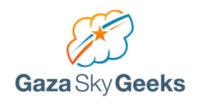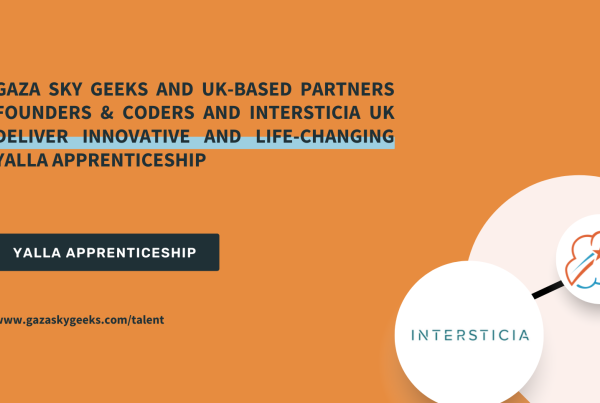This piece was written by contributing writer Glen Dalakian II during the seven-week conflict last summer. Glen had just returned from his first trip to Gaza for our fourth Startup Weekend.
I’ve spent the past two years writing and editing for Wamda, an ecosystem accelerator and the top online tech publication covering startups in the Arab world. During that time, I’ve had the privilege to travel across the Middle East to interview startups, attend entrepreneurship events and report on regional market trends. While each local ecosystem has its own opportunities and unique set of challenges, nothing prepared me for my first trip to Gaza.
This past June, just prior to the current conflict, I visited the Strip for the first time to participate as a mentor at Startup Weekend Gaza.
Gazans are hungry to join the global startup movement
The trip opened my eyes to the striking realities that Gazans wrestle with daily. Nearly no Gazan entrepreneur has a stable source of electricity. During times of intense regional conflict, like the one this summer, none of them have access to a safe place. Despite closed borders and restricted movement the Gazan spirit remains indomitable.
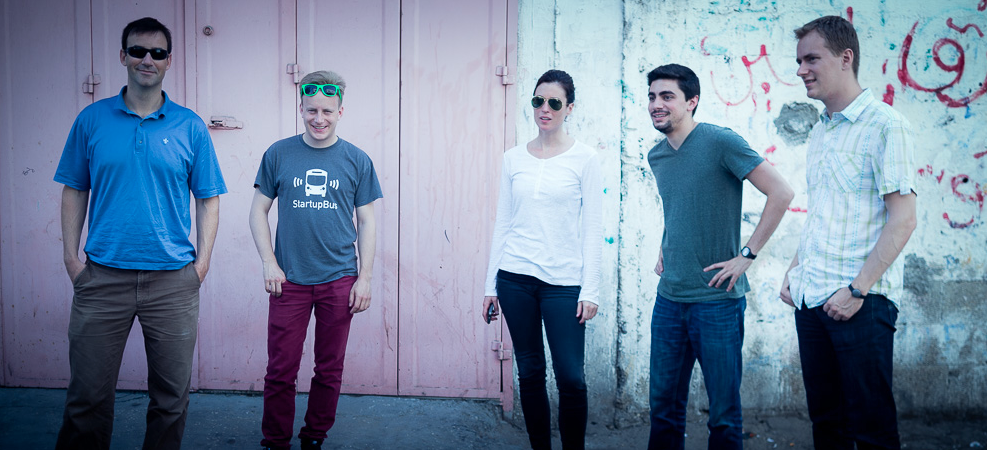
Glen and other international mentors visiting Gaza after Startup Weekend, June 2014. Photo by Asim Janjua.
But what truly left an unforgettable impression on me was the vibrant, young population hungry to create and scale startup ideas. Prior to this trip, I had read a few short articles about small projects popping up in the Strip, but I was not expecting the wave of enthusiasm and entrepreneurial spirit so evident in Gaza. Entrepreneurs in Gaza are some of the most positive, welcoming and energetic innovators I have ever met.
There is also an incredible amount of developer talent in Gaza despite obvious barriers and challenges. At each event I attended, people approached me with laptops and tablets to demonstrate their animations and marketing videos. All were rightfully proud of the products they had created, ones that easily rival the creations of the greater ecosystem.
Greater access is needed
Young creatives like these are eager to reach new markets and scale their companies. For many of the entrepreneurs I met, the first question for mentors was, “How do we reach other markets?” They have great ideas and technical know-how, but they lack experience validating or testing their products in other, larger markets.
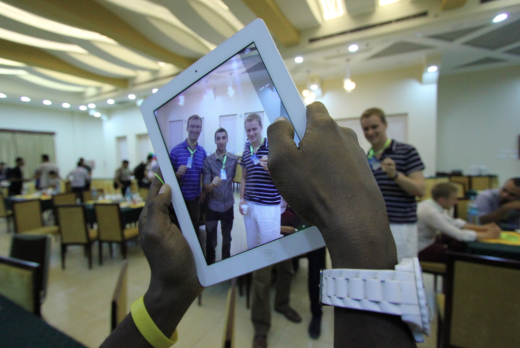
International mentors posing with a local mentor at Startup Weekend Gaza, June 2014. Photo by Magic Lens.
It’s a challenge that is yet unresolved. As mentors, we sometimes had trouble identifying the best ways for them to build a trusted network in other countries; most Gazans cannot get permission to travel to meet with possible partners, investors or staff to expand operations. Even with great internet connectivity, strong business relationships in this world rarely develop fully without face-to-face meetings.
Gaza’s local market (about 2 million people with a 50% unemployment rate) can consume some products and services, but it cannot offer the scalability needed to grow a larger business.
Mercy Corps’s Gaza Sky Geeks, the only startup accelerator in Gaza, has previously received permission to take Gazan entrepreneurs out of Gaza for startup events. Supporting such efforts should be a top priority for anyone working in this space. Ecosystem organizations and other supporters can have the most impact by creating ways for Gazan entrepreneurs to interact with and access larger markets.
Building skills for a global impact
One of the most memorable moments from my time in Gaza was when one young, shy entrepreneur asked a group of mentors, “Do you want to see my animations?” Egging her on, we gathered around her computer as she began to play a video recording of her crafting a cartoon version of herself using several programs on her computer.
It was a simple design exercise, but the room remained silent for a full 5 minutes, transfixed by her design skills and the illustration of how she views herself. The work was beautifully done, but more striking was the pride in her eyes after showing the video. It was visible evidence of the power of design, software development, and startup creation as not just a way to make money, but much more importantly, as a tool of positive empowerment. There are few accessible routes for Gazans to take if they want to contribute meaningfully to the world in a large way. Tech entrepreneurship gives them the chance to do that in the midst of overwhelming challenges and limitations.
It also gives women in particular a chance to create their own employment and play a leadership role in the business sector, contributing their skills while growing their own self-confidence. Through such work, a veritable startup sisterhood has been born in Gaza.
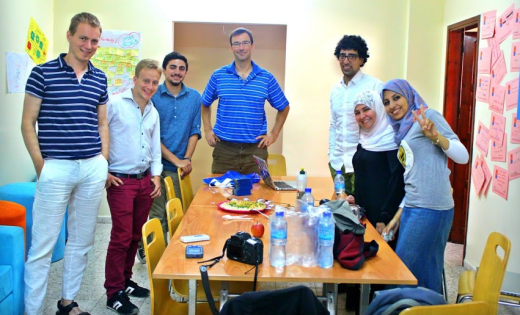
Glen and other international mentors at Gaza Sky Geeks with women startup founders, June 2014.
Get involved in Gaza’s startup future: entrepreneurs there need you
During the current conflict, several Gazan entrepreneurs have turned their skills towards establishing non-profit projects to benefit those in need around them. Due to this incredible positive energy and talent in Gaza, it has the potential to become a small but vibrant tech hub despite the very challenging environment.
When the current conflict winds down, outside resources and access will be needed more than ever before. It will be critical for local entrepreneurs to be able to find the resources they need. This will include finding good mentors, securing resources and building relationships with other ecosystems, from the West Bank to Jordan, Egypt, the greater Middle East and North Africa region, and across the globe. If you’re an entrepreneur, investor, or software engineer, or if you have other skills you’d like to share, let them know.
The tipping point for Gaza’s entrepreneurs will occur once many local entrepreneurs have had the chance to experience the tech sectors in other countries and build the deep relationships needed to do their work well. I am hopeful that will be possible soon.
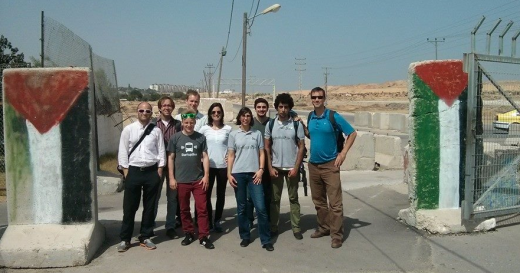
For a full recap of my trip to Gaza, see this piece.
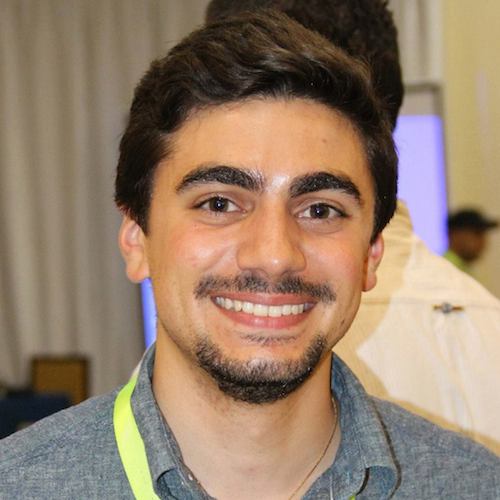
by contributing writer
Glen Dalakian II
Director of HIVE accelerator, former features editor at Wamda

